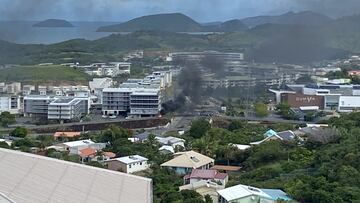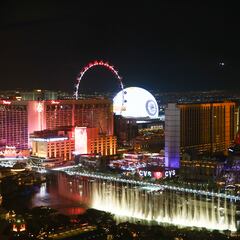Where is New Caledonia? The reason behind the islanders’ protests
New Caledonia, one of France’s last remaining overseas territories, has been gripped by unrest for the past week. Here’s what sparked the violence.

France imposed a state of emergency on its overseas territory of New Caledonia on Wednesday, Thursday in the archipelago, which is 10 time zones ahead of Paris, after days of violence turned deadly. So far five people have died, two of them police officers, and hundreds have been injured. France has rushed 1,000 additional security forces to help restore calm.
It’s the first time since 1985 that France has had to declare a state of emergency in one of its overseas territories. That was also to subdue unrest in New Caledonia. Peace has been largely maintained on the archipelago since a deal was reached in 1988 between rival factions.
Where is New Caledonia?
New Caledonia, consisting of a group of islands roughly the size of New Jersey, lies in the Pacific Ocean between Australia and Fiji. It has been a French territory since 1853 and served as a prison colony in the past. Nowadays, it is one of France’s twelve remaining overseas territories and an important military outpost in the Pacific.
The territory has long sought independence. Three referendums have been held between 2018 and 2021. The first two showed a small majority voting to stay a part of France. However, the pro-independence movement boycotted the third one in December 2021 after a request to postpone it in light of the covid-19 pandemic was denied. Proponents of breaking with France have never recognized the results.
The reason behind the islanders’ protests
The unrest was sparked by voting reforms, pushed by President Emmanuel Macron’s government, were voted on in Paris to change the electoral rolls. Those will allow more French residents to vote in provincial and assembly elections in New Caledonia. The indigenous Kanak people, who make up roughly 40% of the around 300,000 people that live there, fear that it will dilute their political influence.
A decade after the unrest in the 1980s, France agreed to give New Caledonia more political autonomy under the 1998 Nouméa Accord as well as allow up to three independence referendums. Also, only those French residents who were living there at that time were granted the right to vote in future elections.
Related stories
However, since then the French population on the archipelago has increased by over 40,000, who would gain the right to vote if the new voting reforms are passed by a joint session of the French parliament.
The changes require amending the French constitution to make the bill law. President Emmanuel Macron said that he would convene the Congress to amend the constitution by the end of June.



Complete your personal details to comment